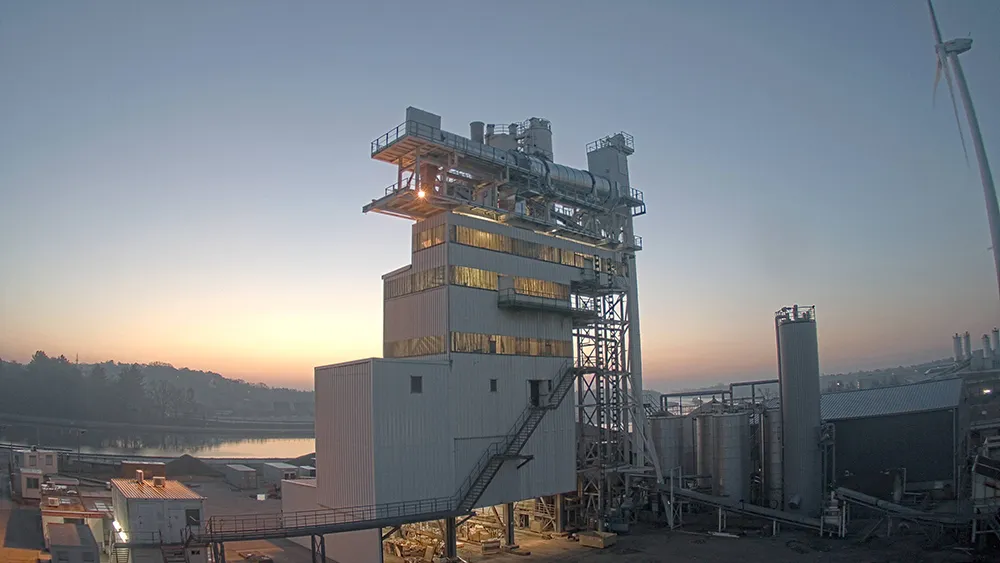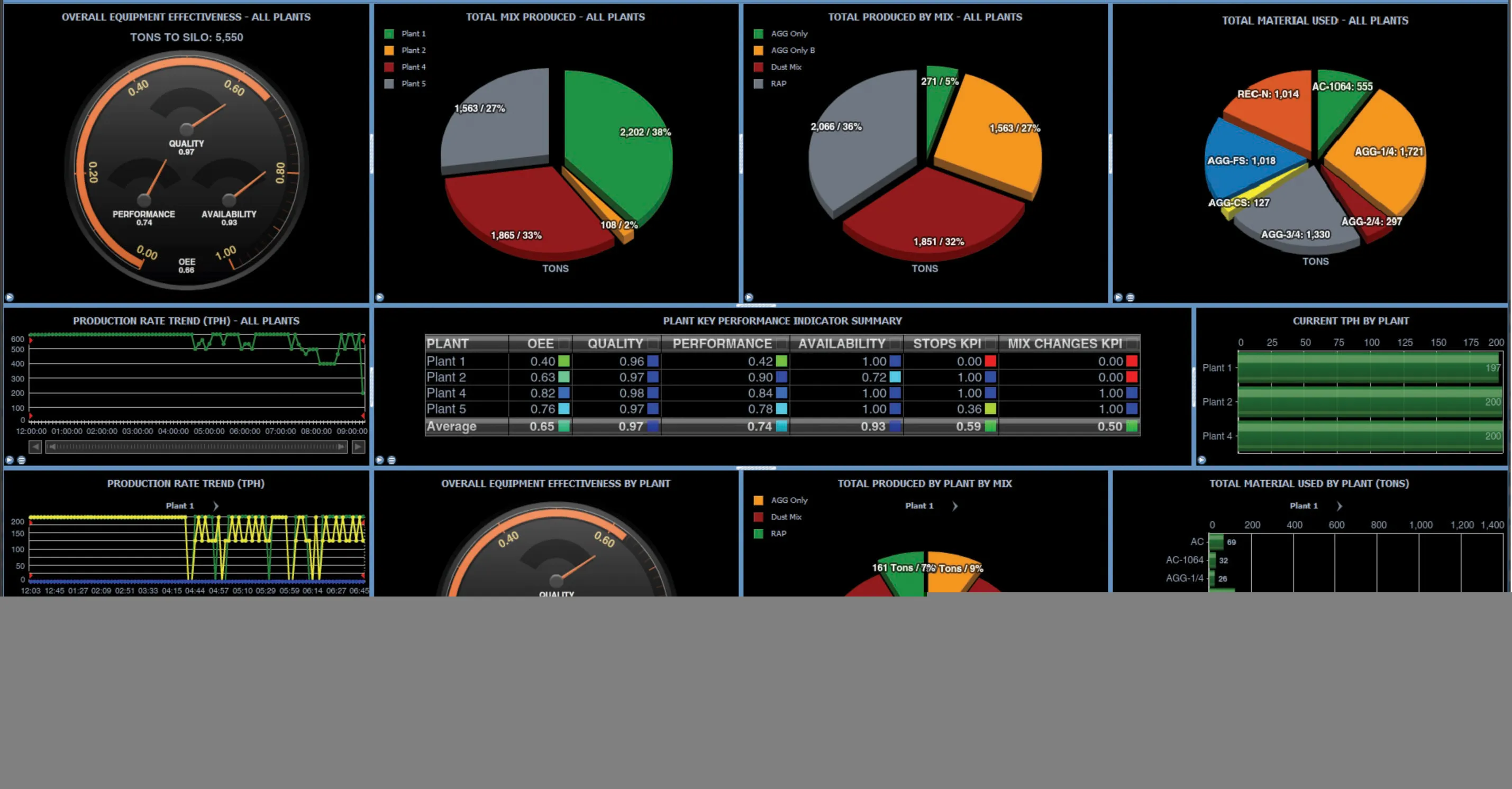
The asphalt-mixing plant is located close to a residential area, with many neighbours nearby. A key benefit is that the retrofit reduces odour emissions significantly. Important to the plant is the RAH100’s advanced proprietary heating technology. It is important because the dryer features a warming system that minimises odour while producing mix of an extremely high quality.
Mitigating odour was the main concern for this retrofit, but the new dryer also resulted in better quality mix because the gentle heating process protects the bitumen. The RAH100 counterflow dryer enables new asphalt mix to be made with 100% recycled asphalt (RAP). While APL is interested in eventually using more RAP, it was the RAH100’s innovative heating that spurred APL to go ahead with the retrofit. The RAH100 consists of two connected sections. One is a hot gas generator that contains a burner and forces hot gas toward the second section, a counterflow dryer.
The RAP enters at the far end of the counterflow dryer section and moves toward the heat chamber. At the end of the counterflow dryer, the material is transported to an accompanying silo. The heated material leaves the dryer before the temperature becomes excessive, which reduces both fumes and odour.
The revamped plant is fully cladded and features a silencer and cover on the elevator head to reduce sound.








